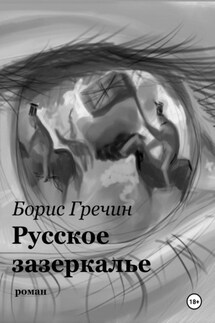Русское зазеркалье - страница 12
Over years, decades, and centuries, most of you have got accustomed to the image of a pop singer fabricating away ‘nice tunes’ of relatively low cultural value to please teenagers, housewives, or perhaps manual workers in order to get their admiration and—obviously enough—their money. You also have a mental image of a rock celebrity who deliberately provokes and shocks the public conscience by all means possible; probably in order to reform his or her countrymen, to challenge important social or political problems, and thus to make the society he or she lives in a better place. (Forgive me these oversimplifications: you know as much as I do that they are a far too simple way to describe the musical landscape of the West.) In Soviet Russia, these cultural clichés have never worked, and it still remains unclear whether they work in the Russian Federation of today.
You do not feel compelled to win the hearts of teenagers as long as your income in no way depends on the sales of your new album; actually, you cannot profit from your album either: it is the Communist Party that owns your work and allows you to be active creatively. Or, more recently, you cannot make a fortune from your new album because your brand-new compositions emerge somewhere on the Russian web shortly after its official release, leaked by some copyright pirates, so why bother at all? Intellectual property is not a concept widely recongised by Russians or even by Russian official bodies, and there is something within Russian mentality that makes it almost impossible for us to ever truly recognise this concept—our deep contempt towards individualism and petty-bourgeois profit gaining, perhaps. You do not need—you do not dare, probably—to question the moral foundations of society since those very foundations are unquestionable, in the Russia of today as much as in the Soviet period. Rather than that, you can concentrate on creating songs that claim to describe ‘higher values’ or deliver to your audience some important messages about the basics of human existence. (I am painfully aware of the fact that ‘higher values’ is a pretty vague term, and so are ‘the basics of human existence.’) In other words, Russian bard and rock music of the period looks very unimpressive when seen through the lens of politics, but it becomes extraordinarily interesting as soon as you start to interpret it in terms of philosophy—or maybe religion.
This was my explanation of why you cannot be over-confident when applying conventional genre definitions to the Russian music of the period. You can take it or leave it, you also can come up with a better explanation, and you will be very welcome to do so during our discussion.
Having done with the preliminaries, let us turn to Igor Sarukhanov’s ‘Skripka-Lisa.’ The song, written in 1997, was a hit of the late 90es, and it still evokes sweet nostalgic memories in a great number of Russians.
The name of the song suggests a pun; you also may see it as a typical mondegreen. The term mondegreen was coined by Sylvia Wright, and American writer, in 1954.
They have slain the Earl O' Moray,
And laid him on the green.
Can you, too, hear it as ‘And Lady Mondegreen’ the way she did when she was a child?
The Russian [skripkalisa] can be interpreted as either ‘the screeching (Russian “skrip”) of a wheel (Russian “kolesa”),’ probably a wheel of an old traditional horse-carriage, which is the most obvious interpretation, given the next line that speaks of muddy roads, full of puddles. Or, again, the name can be read as ‘a violin’ (Russian ‘skripka’) that somehow resembles, or maybe imitates, a ‘vixen’, a she-fox (Russian ‘lisa’). At the first glance, the second reading makes no sense whatever, and yet, the official name of the song is ‘Skripka-Lisa,’ ‘A Violin [Resembling] a Fox’—or maybe it is the fox who imitates the violin, who knows… One must have a Soviet background to fully understand that—to understand, that is, why the name of the song was so absurdly distorted. Because of the aesthetic reasons, one might say: a violin sounds much better than a screeching wheel, figuratively and literally so. The fact is that Russian artists are not particularly concerned with purely aesthetic reasons as long as ‘more important issues’ are at stake.






